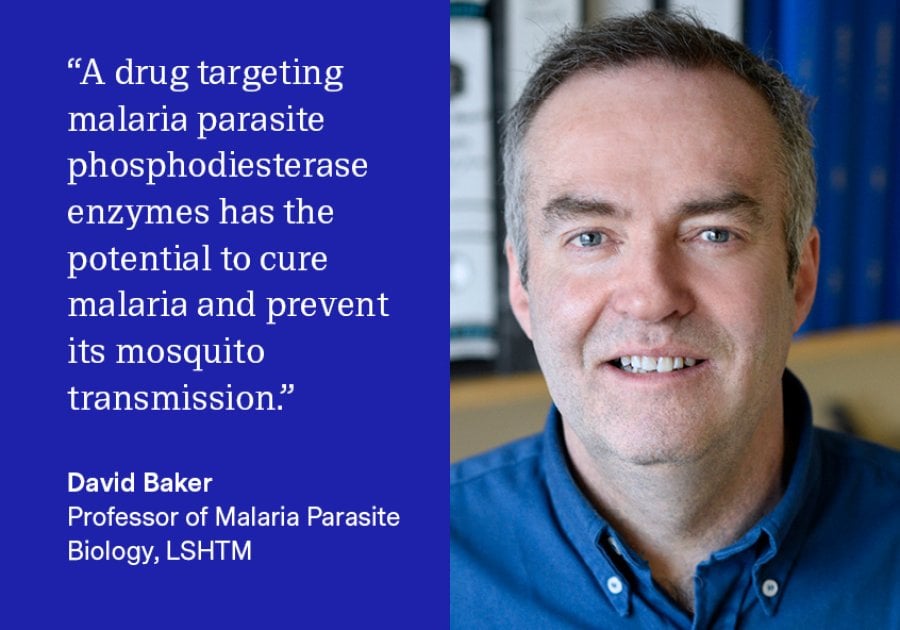
"A drug targeting malaria parasite PDEs has the potential to cure malaria and prevent its mosquito transmission." Professor David Baker
A study led by researchers at the London School of Hygiene & Tropical Medicine (LSHTM) has unveiled a new class of compounds that show promise as potent antimalarial drugs.
The study published in Science Advances has shown that these inhibitors target malaria parasite cyclic nucleotide phosphodiesterase (PDE) enzymes, and that they effectively kill the parasite during the asexual blood stage of the life cycle and block transmission of sexual-stage parasites to mosquitoes.
Researchers have identified the potential of PDE inhibitors—compounds similar to those used in medications like Viagra—as a promising approach for malaria treatment and control. PDE enzymes play a crucial role in breaking down two signalling molecules, cAMP and cGMP, which regulate many cellular processes. Blocking these enzymes causes these molecules to build up, leading to significant effects. For example, in humans, Viagra works by blocking a human PDE enzyme, allowing cGMP to accumulate and improve blood flow.
In our study, inhibiting malaria parasite PDEβ in the asexual blood stage causes cAMP to build up, killing the parasites in the human host. Similarly, blocking PDEδ in the sexual stage leads to cGMP accumulation, which kills the parasites before they can infect mosquitoes. This dual-action approach offers an exciting avenue for malaria treatment and prevention.
Professor David Baker, senior author of the study and Professor of Malaria Parasite Biology at LSHTM, said:
“This has been an exciting team effort working with partners to produce PDE inhibitors that are active against two key stages of the malaria parasite life cycle. A drug targeting malaria parasite PDEs has the potential to cure malaria and prevent its mosquito transmission. It is very encouraging that PDE inhibitors have been used safely and successfully in humans to treat a number of non-infectious disorders.
“The next two years will be critical in terms of finding out whether the next generation of our compounds will be suitable for inclusion in a future antimalarial drug combination treatment.”
The study identified three sub-series of PDEβ inhibitors with rapid and potent activity against Plasmodium falciparum, the parasite responsible for the deadliest form of malaria. Two of these sub-series were also effective in blocking parasite transmission by targeting PDEs expressed during sexual stage development, the life cycle phase required for transmission to mosquitoes.
While the compounds in this study show significant promise, it’s important to note that many drugs at this stage of the discovery process face a high failure rate, making the path to delivering a treatment to the clinic challenging. However, these compounds have met several key criteria, indicating encouraging progress so far.
This research has been supported by two consecutive Wellcome Trust grants, with the objectives of both studies successfully achieved. To advance this work, the team has submitted a larger grant application in collaboration with the Medicines for Malaria Venture (MMV) to secure funding for the next stages of development.
The study was funded by Wellcome and conducted in collaboration with medicinal chemists and drug discovery experts from Salvensis and MMV.
If you enjoyed this article and would like to build a career in global health, we offer a range of MSc programmes covering health and data, infectious and tropical diseases, population health, and public health and policy.
Available on campus or online, including flexible study that works around your work and home life, be part of a global community at the UK's no.1 public health university.
